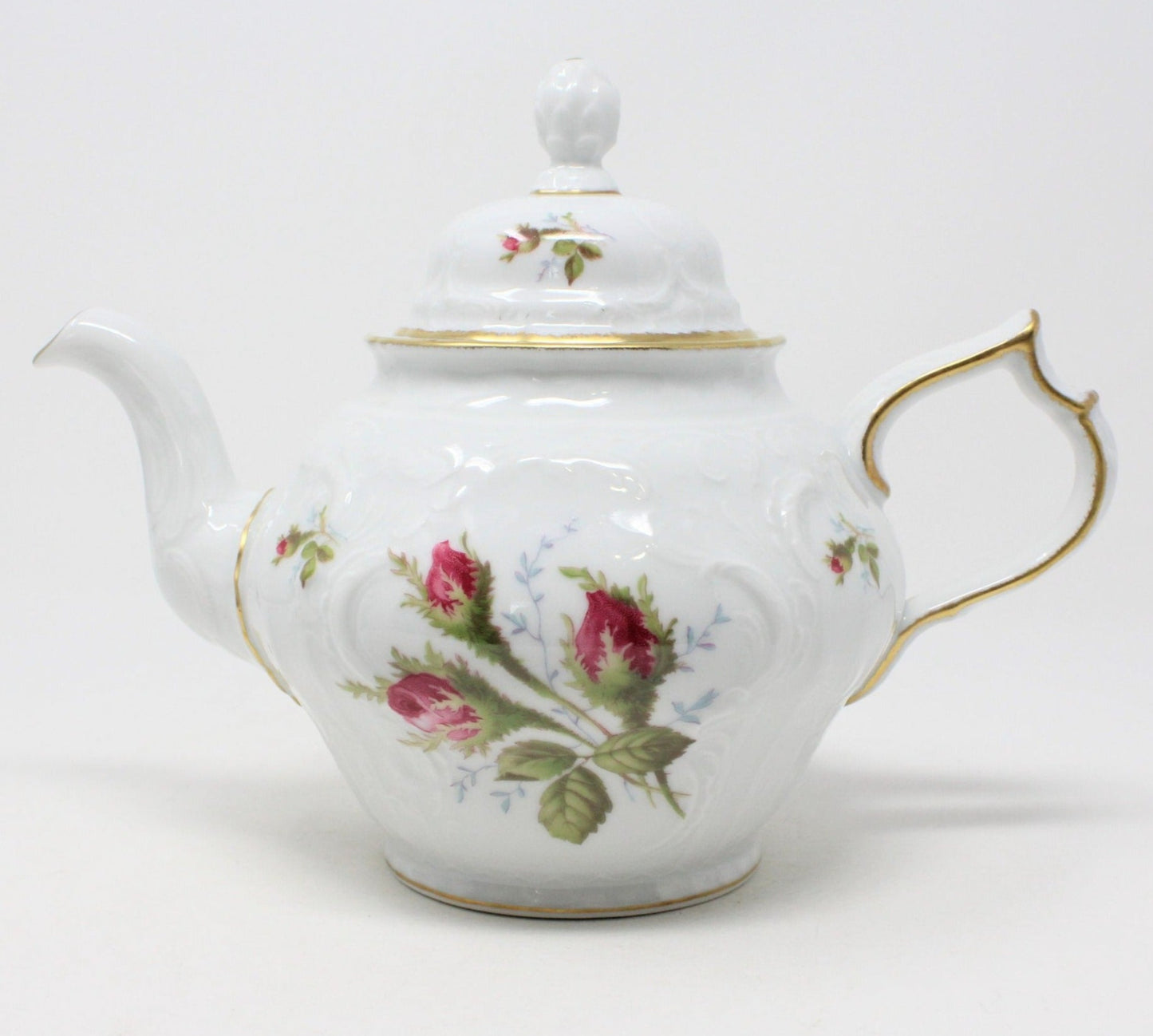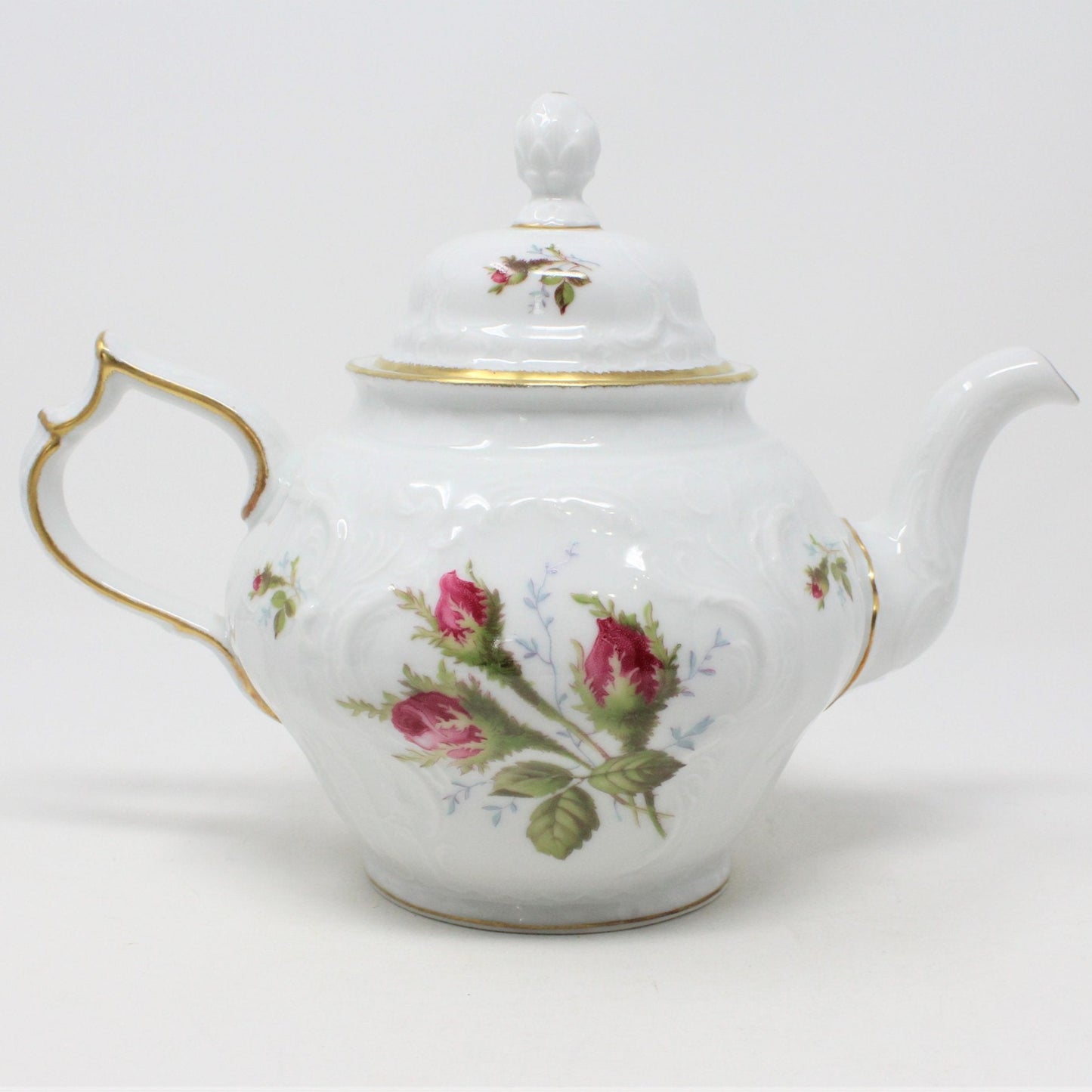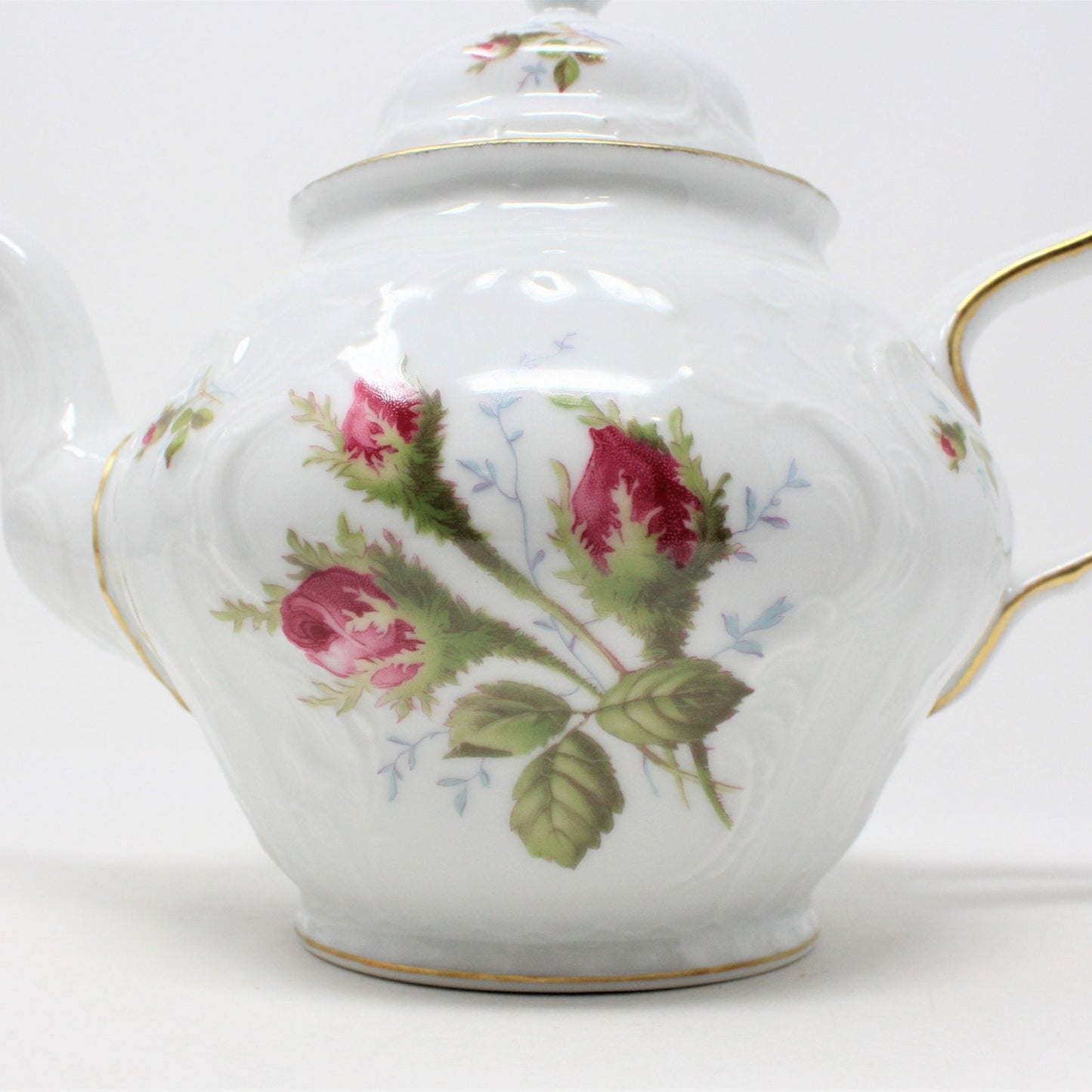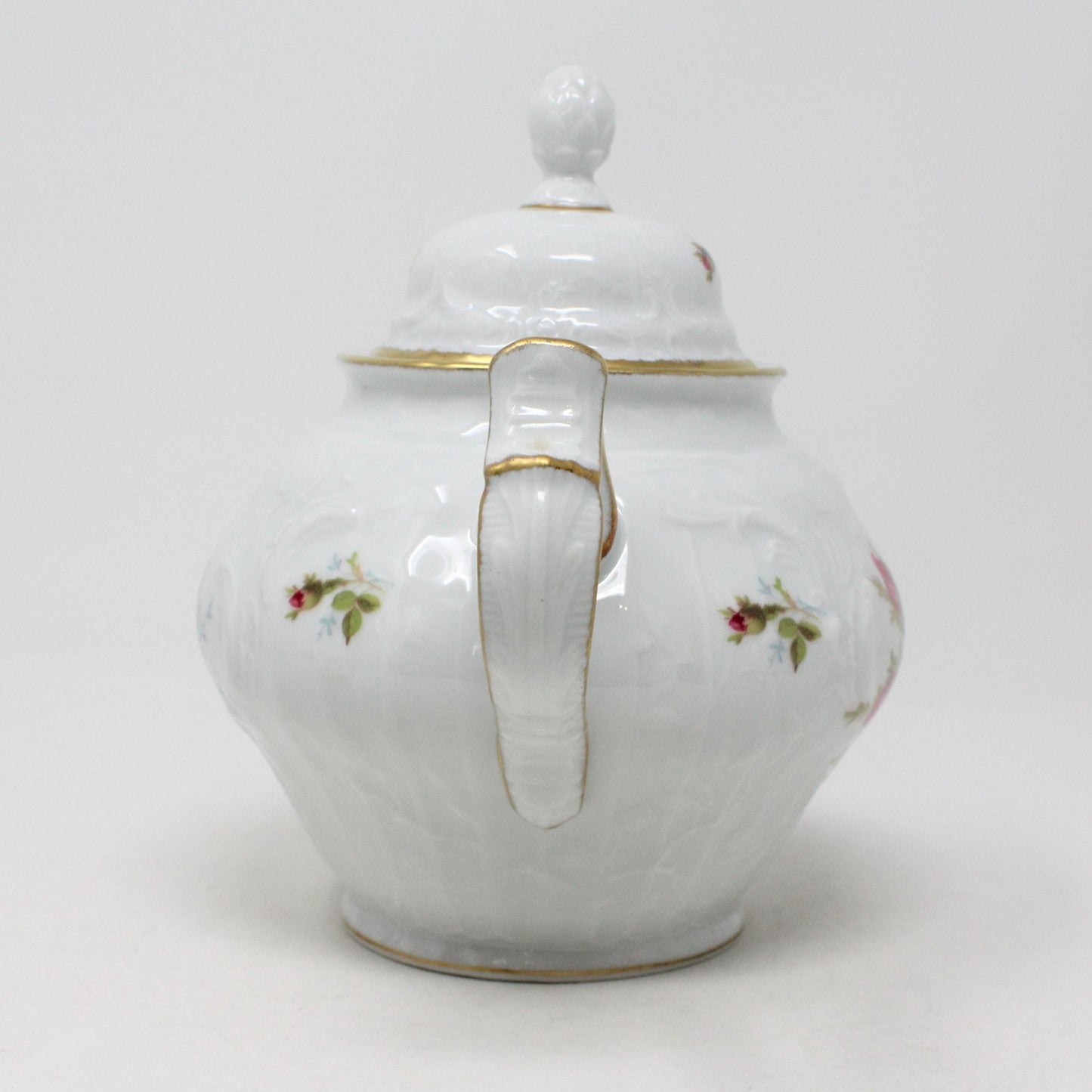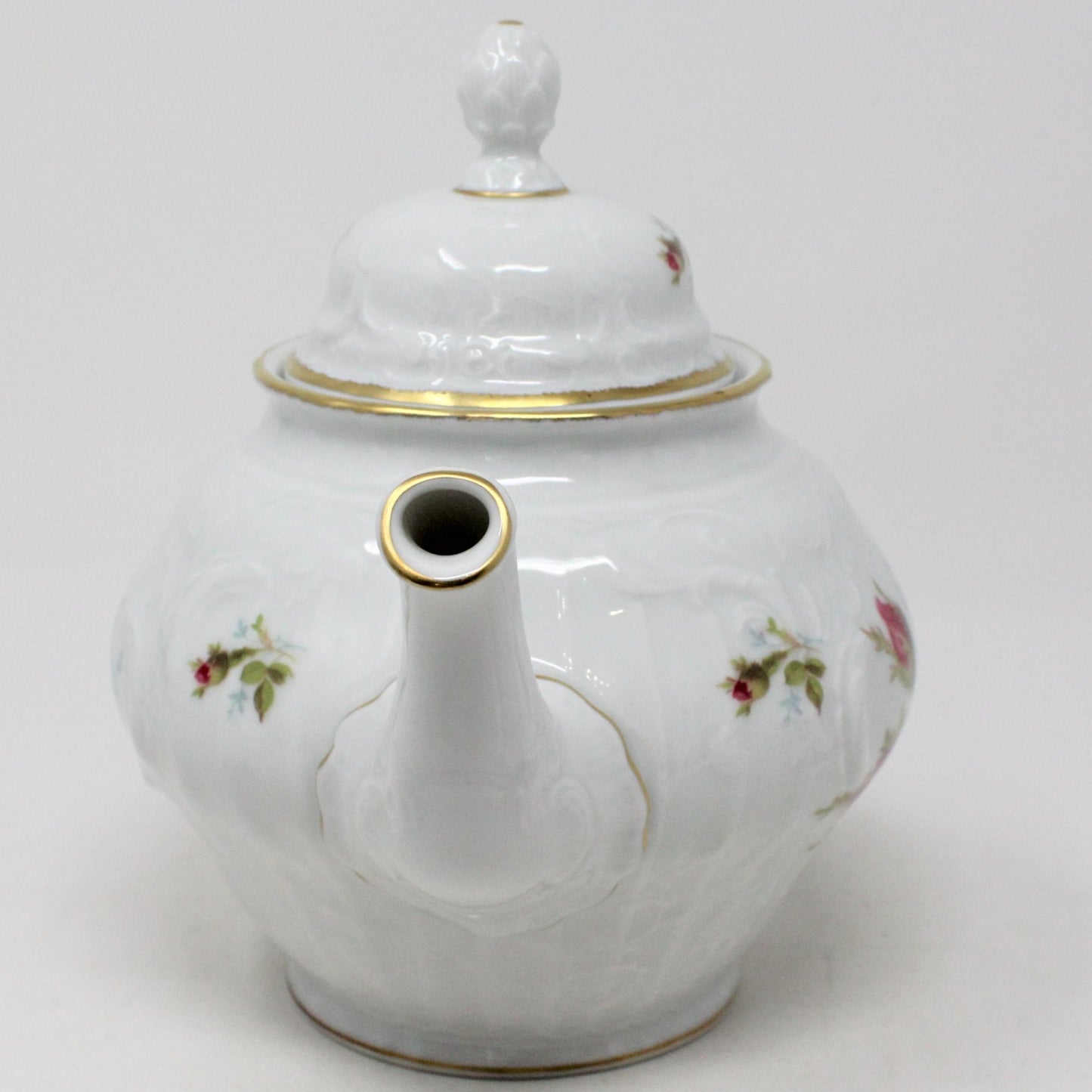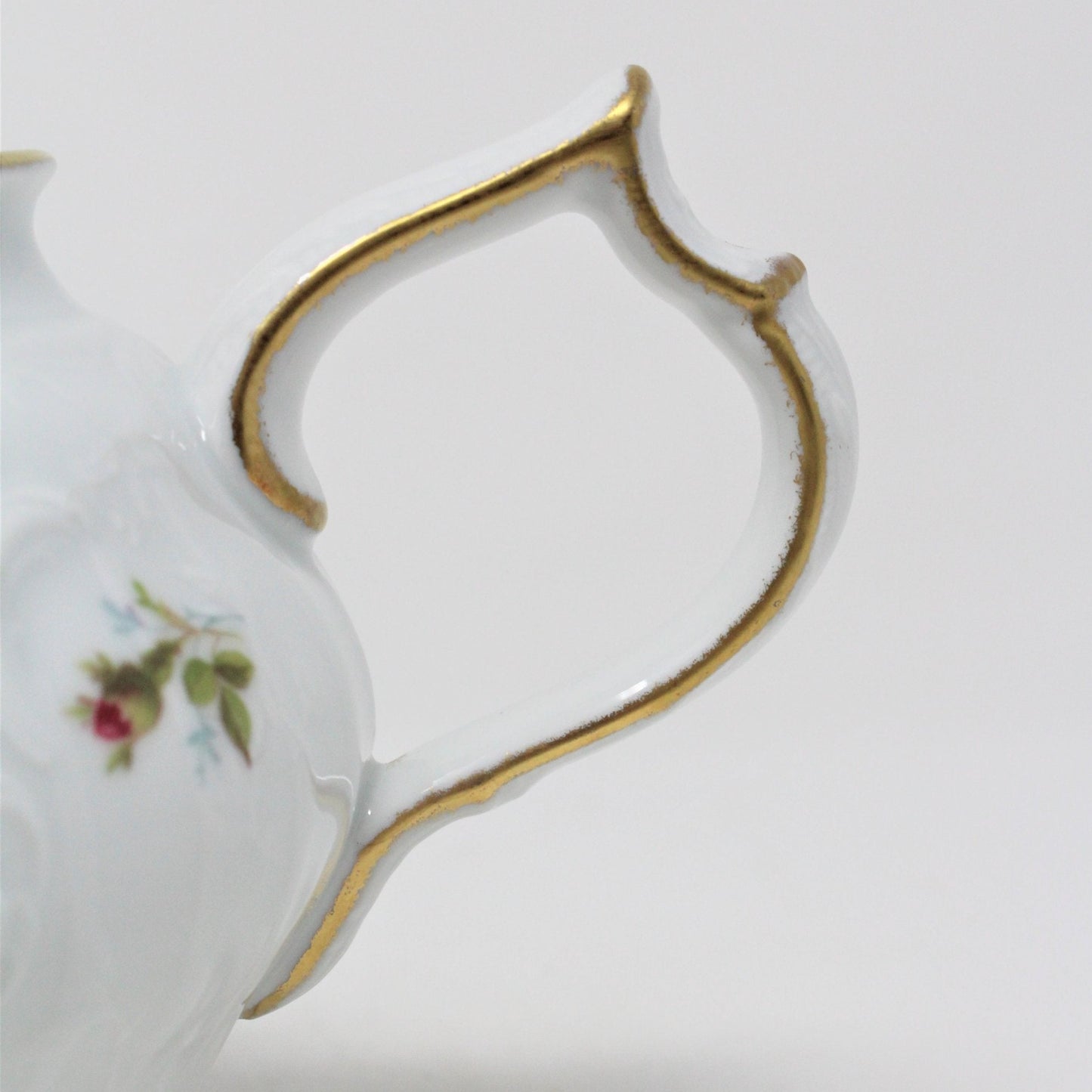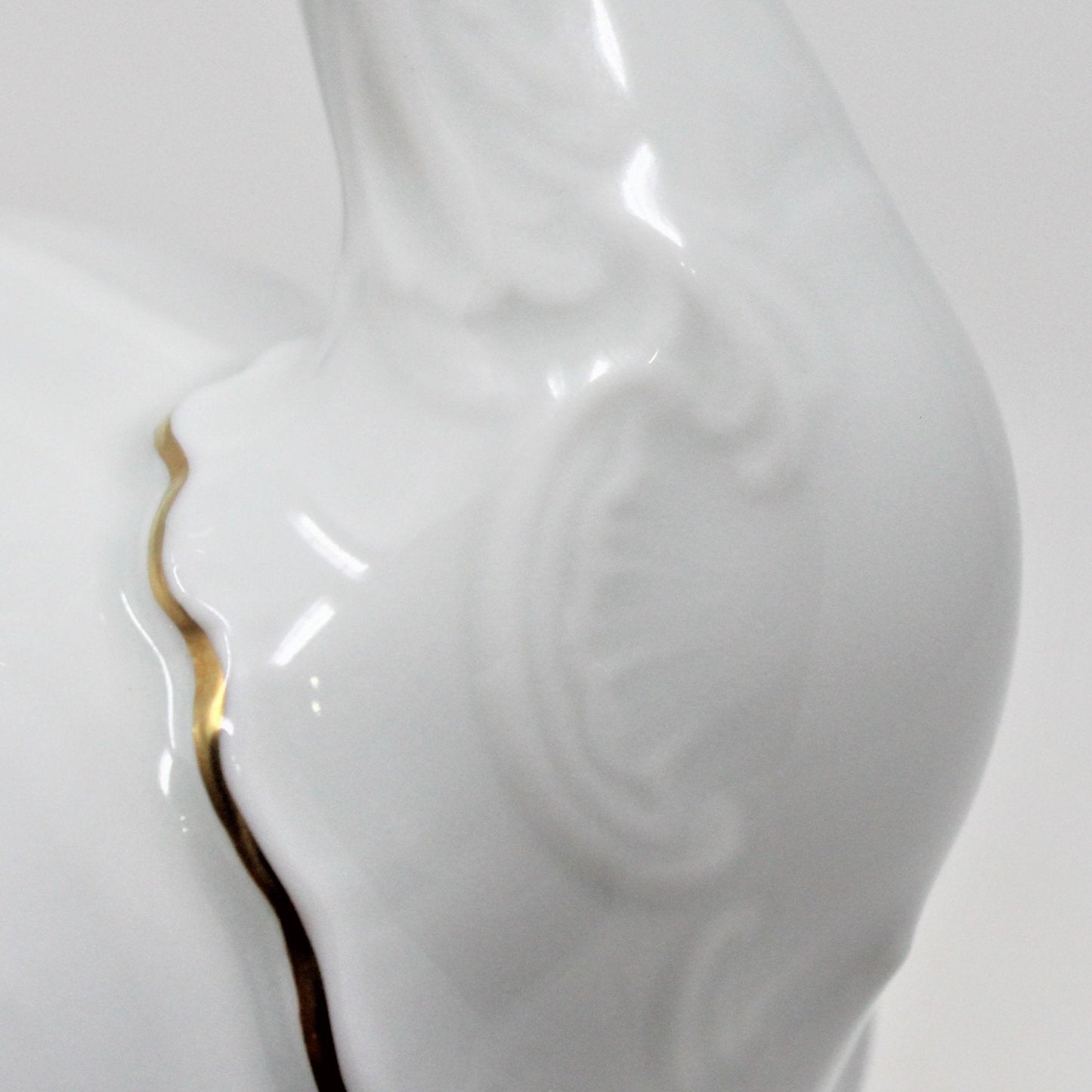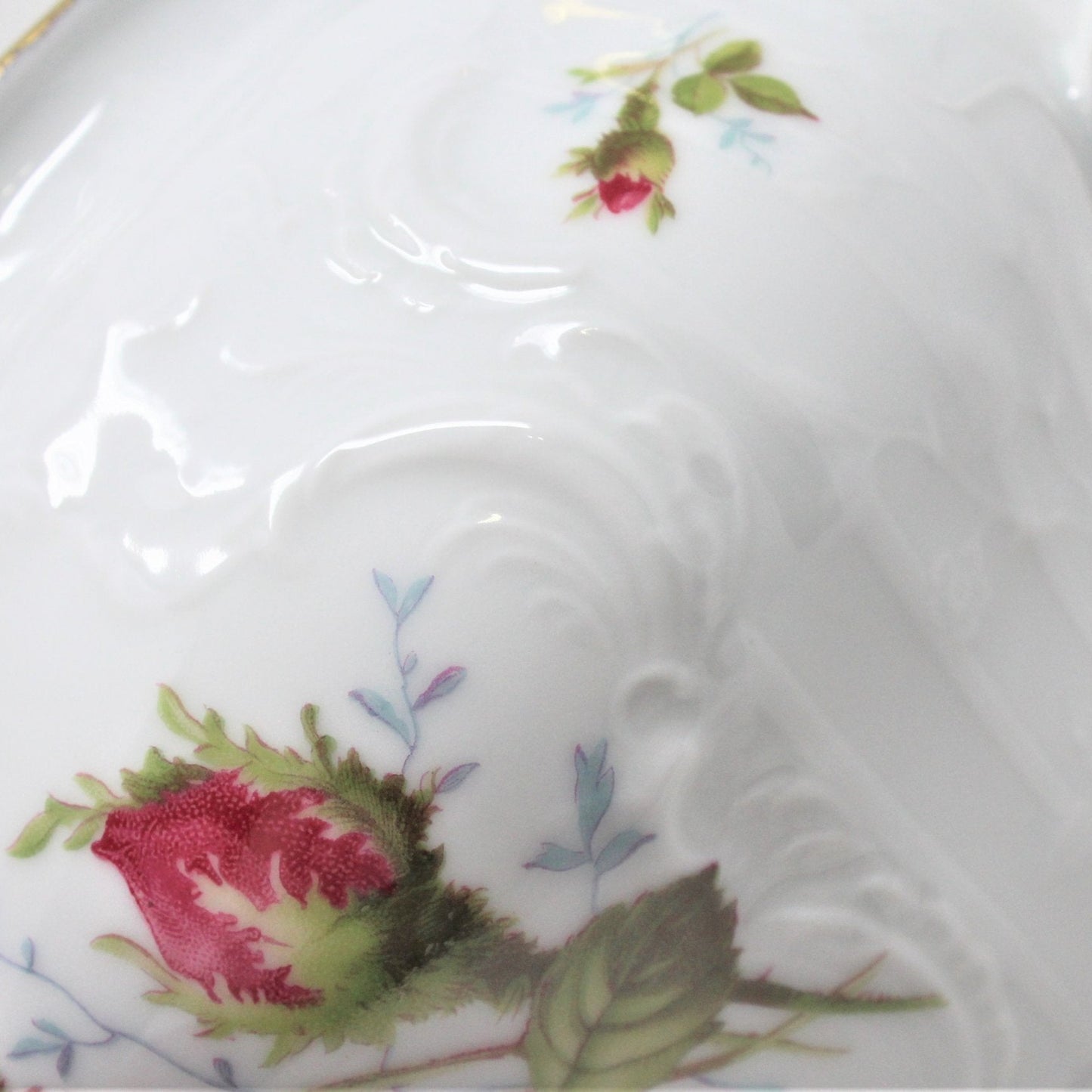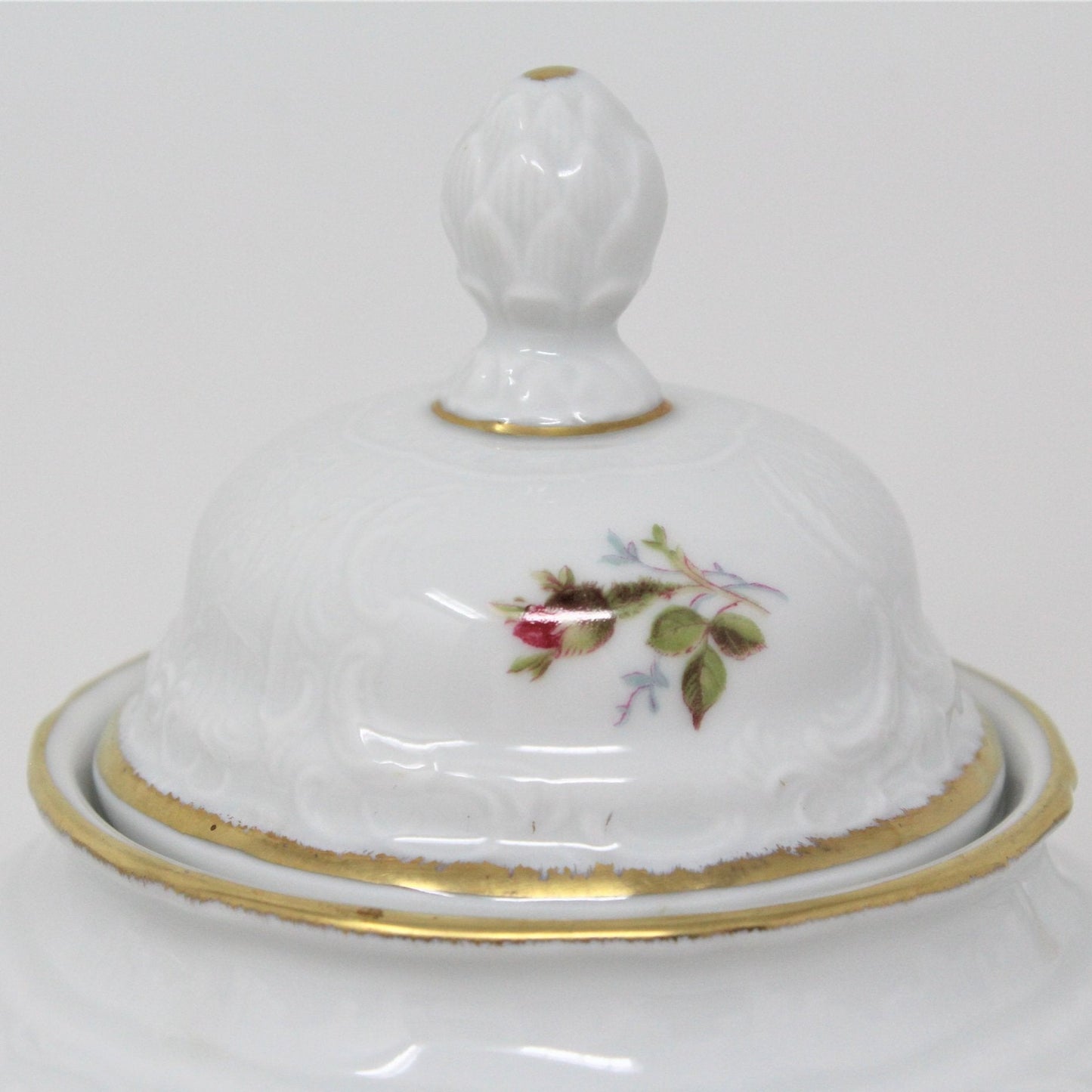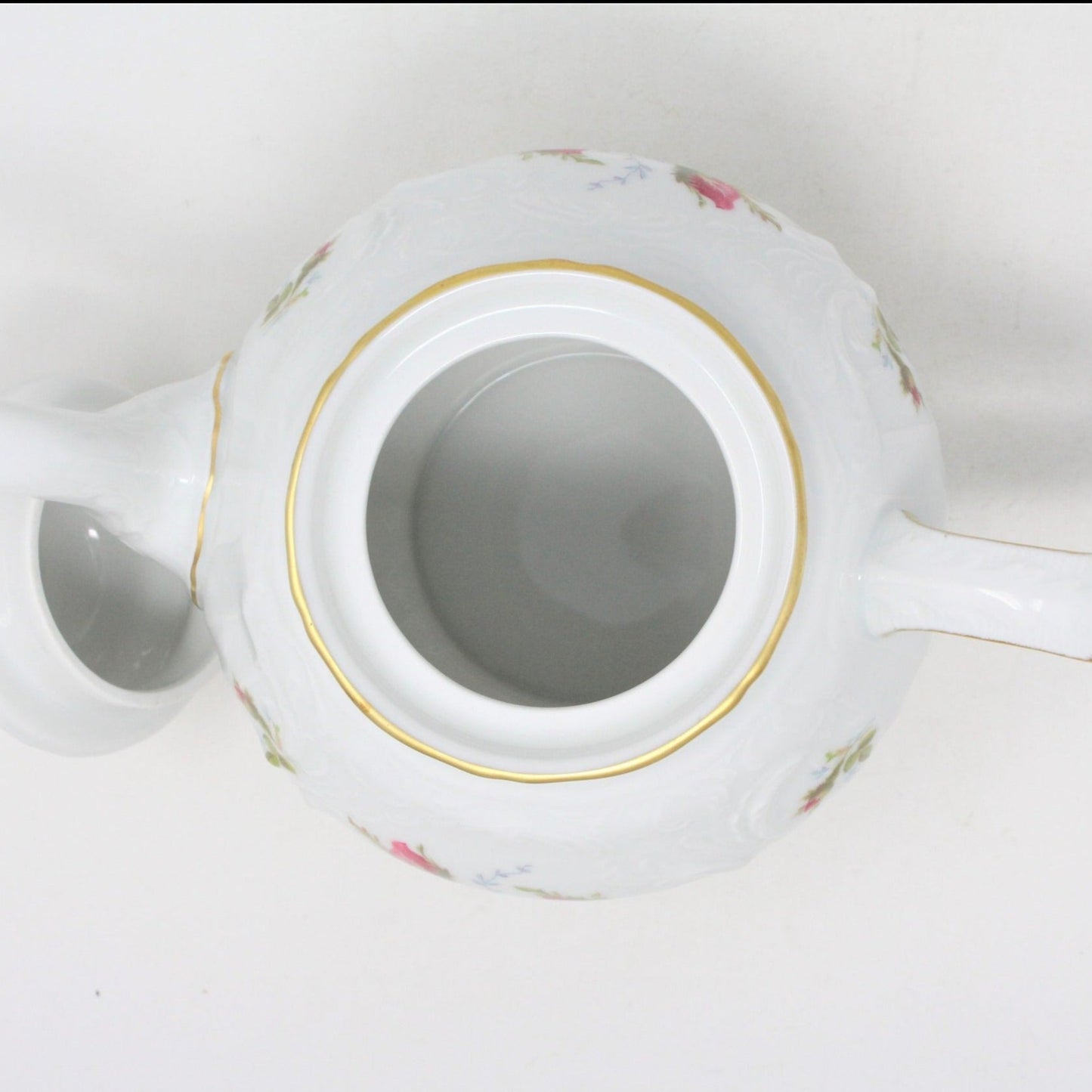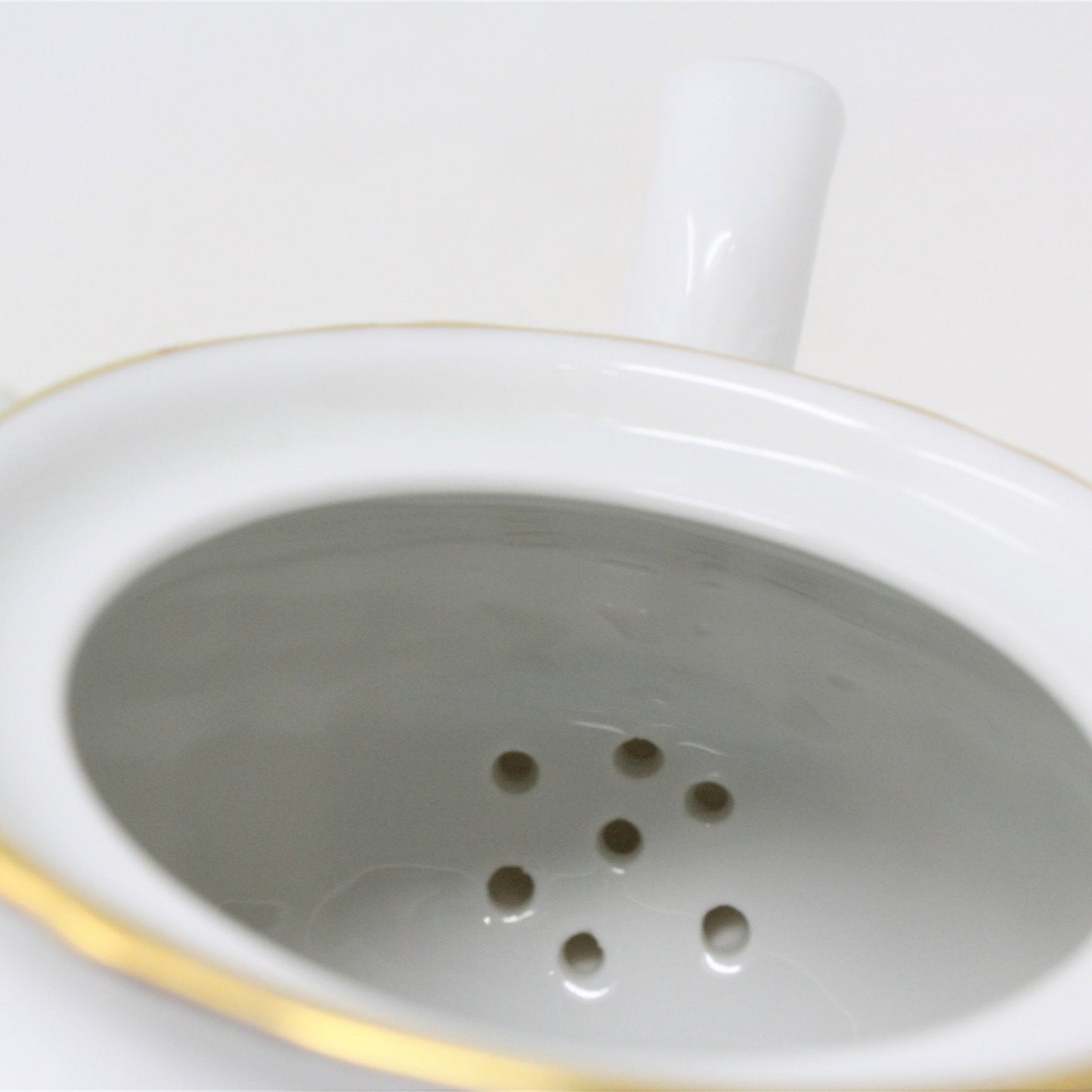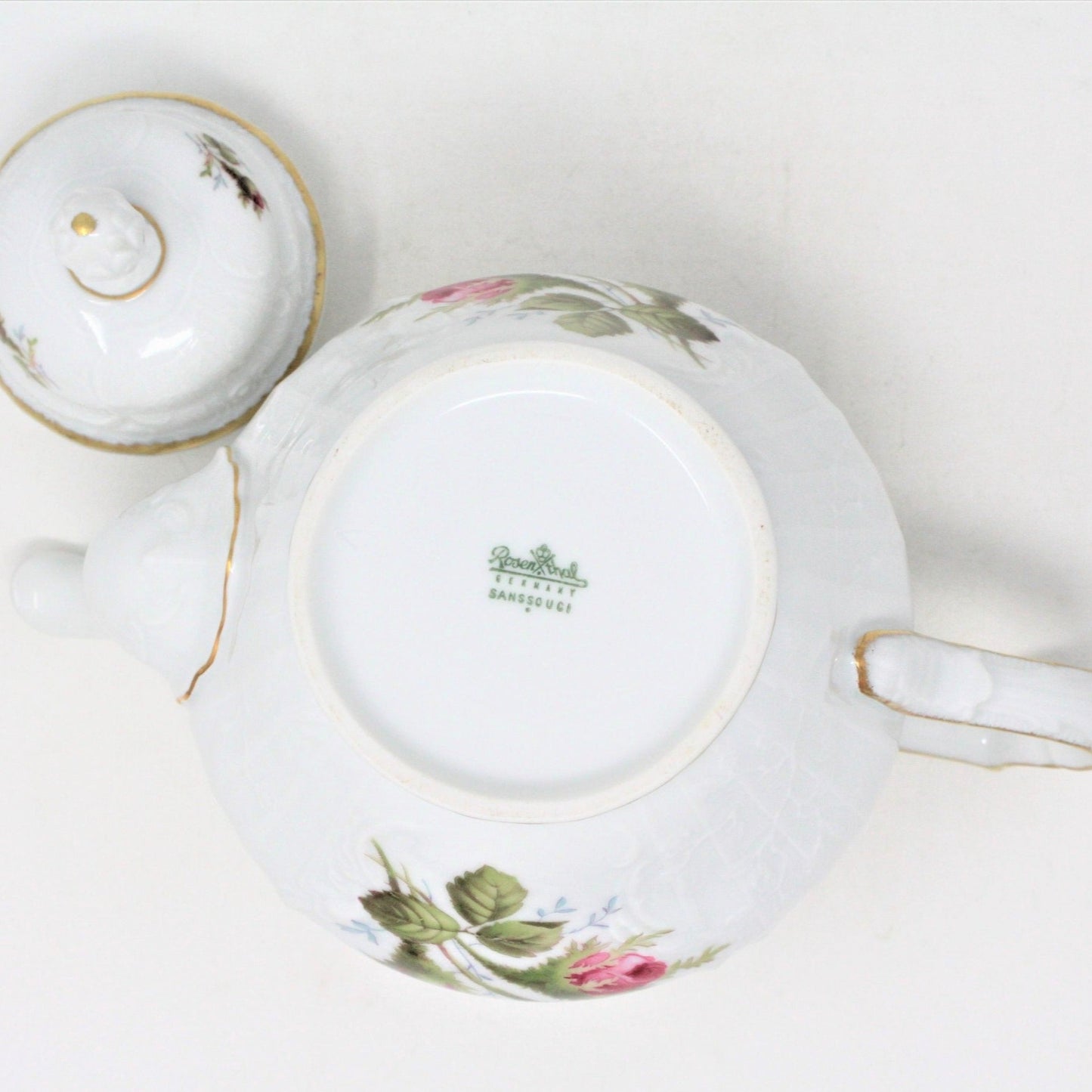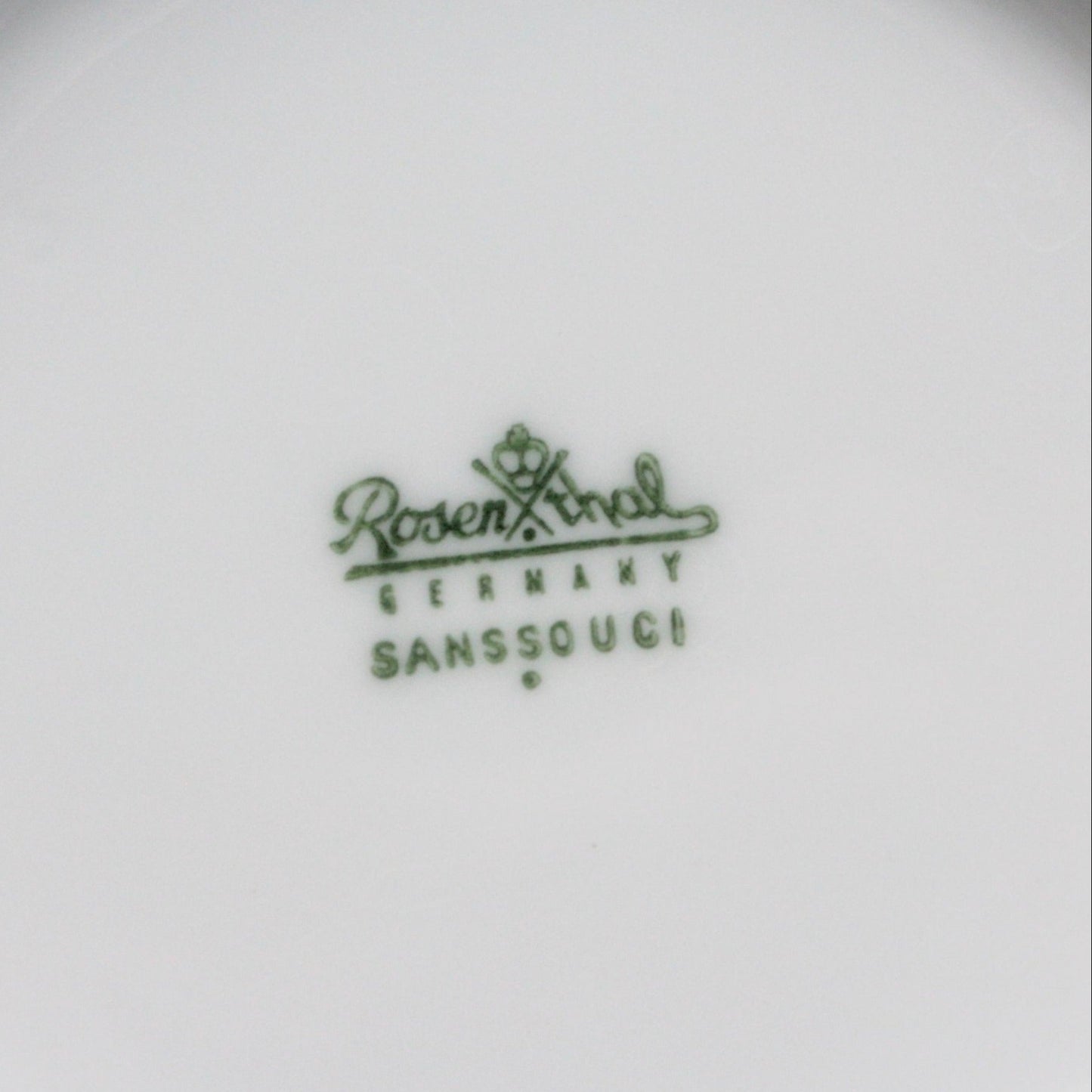Rosenthal
Teapot, Rosenthal SansSouci, Moss Rose, Germany, Vintage
Teapot, Rosenthal SansSouci, Moss Rose, Germany, Vintage
Couldn't load pickup availability
- Vintage Teapot, Rosenthal Moss Rose on Sanssouci pattern, German Porcelain, Pink Rose Buds, Embossed Porcelain, Elegant Tea Wares, Mid Century, Tea Party, Tea Gifts, Teapot Collectors, (Discontinued)
- Made in Germany
- Vintage: 1950 - 1973
- Details: This is an absolutely gorgeous teapot with a lot of history behind it. The pattern is called "Moss Rose" and it was one of the best selling patterns from Rosenthal. So much so that they brought it back in the 1980's, with slight differences, (one we noted was on the decal, the new decal has only two roses) and it's still available today, but based on the backstamp, we are pretty confident this teapot is pre-1974, however, we are not experts, please refer to the pictures to make your own determination. The Teapot is not smooth, it has an elaborate embossed pattern which is a replica of the stucco ceiling of the Sanssouci palace in Potsdam, near Berlin, hence the name "Sanssouci", and truly a gorgeous pattern. The teapot has a pineapple finial on the lid, a traditional symbol of hospitality. There are several gold accents/outlines all around the teapot. A great addition to your next tea party, table setting or for those who love to mix and match patterns. If you are collecting the Moss Rose pattern be aware, there are several different makers with slightly different patterns. If you just love Moss Rose and the exact pattern match is not an issue, then you will find lots to choose from, even right here on Antigo Trunk we carry several different Moss Rose pieces. This would be a most generous gift for a teapot collector!
- Material: Ceramic
- Dimensions: Approx. 6.0 inches Tall. Holds 5 cups.
- Condition: Vintage - Used. Excellent Condition. There are no chips, cracks or scratches, shows hardly any wear. Please review all pictures and make sure you love this item before purchasing, we can't accept returns. All Sales Final. Please remember these are VINTAGE and ANTIQUE items, they are NOT new, every effort has been made to show any scratches, wear and tear and imperfections.
The Sanssouci pattern goes back to when Frederick the Great built the "Castle Sanssouci" in Potsdam in 1745. He ordered a set of tableware just for the palace from KPM the manufacturer to the royals at the time. KPM developed the relief porcelain to mimic the Rococo stucco ceiling of the “Great Hall” in the castle. Although the Sanssouci pattern was highly popular and copied by many different manufacturers, Rosenthal was the only one that acquired the license from the KPM to produce this porcelain true to the original.
Rosenthal was founded in 1879 as a family business by Philipp Rosenthal, he would purchase white ware from Hutschenreuther and sell designs, hand painted by his wife Maria, door to door. In 1891, he established a factory in Asch, Bohemia and began production of white ware for use in his workshop. From 1897 to 1936, Rosenthal acquired several factories. The popularity of the "Maria White" and "Moss Rose" patterns helped the business grow rapidly. Philipp Rosenthal died in 1937. The company has a long history and went thru several changes and acquisitions, they also had numerous political issues during WWII (Rosenthal being Jewish), during that time Rosenthal porcelain was distributed in the USA by Rosenthal-Block China Corporation, a company founded by Joseph Block. Philip Rosenthal, Philipp's son, came into the business in the 1950's and grew it to be the market leader for high-quality porcelain and glassware in Germany. In 1969 the name Rosenthal Glas & Porzellan was shortened to Rosenthal AG. Today, Rosenthal GmbH is an independent company of the Sambonet-Paderno Group. There is now a "Rosenthal Archive", a collection of around 15,000 exhibits from 130 years of company history, in the Porzellanikon State Museum of Porcelain in Hohenberg, Germany. These include nearly all product designs, from the company's foundation to today, as well as originals designed by artists such as Salvador Dalí, Andy Warhol, Wilhelm Wagenfeld, Raymond Loewy and Walter Gropius.
Share
